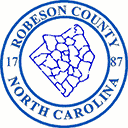Farmers Need Detailed Plan for Managing Risks
go.ncsu.edu/readext?840716
en Español / em Português
El inglés es el idioma de control de esta página. En la medida en que haya algún conflicto entre la traducción al inglés y la traducción, el inglés prevalece.
Al hacer clic en el enlace de traducción se activa un servicio de traducción gratuito para convertir la página al español. Al igual que con cualquier traducción por Internet, la conversión no es sensible al contexto y puede que no traduzca el texto en su significado original. NC State Extension no garantiza la exactitud del texto traducido. Por favor, tenga en cuenta que algunas aplicaciones y/o servicios pueden no funcionar como se espera cuando se traducen.
Português
Inglês é o idioma de controle desta página. Na medida que haja algum conflito entre o texto original em Inglês e a tradução, o Inglês prevalece.
Ao clicar no link de tradução, um serviço gratuito de tradução será ativado para converter a página para o Português. Como em qualquer tradução pela internet, a conversão não é sensivel ao contexto e pode não ocorrer a tradução para o significado orginal. O serviço de Extensão da Carolina do Norte (NC State Extension) não garante a exatidão do texto traduzido. Por favor, observe que algumas funções ou serviços podem não funcionar como esperado após a tradução.
English
English is the controlling language of this page. To the extent there is any conflict between the English text and the translation, English controls.
Clicking on the translation link activates a free translation service to convert the page to Spanish. As with any Internet translation, the conversion is not context-sensitive and may not translate the text to its original meaning. NC State Extension does not guarantee the accuracy of the translated text. Please note that some applications and/or services may not function as expected when translated.
Collapse ▲Many farmers have completed their 2021 planting season and are looking forward to 2022 with some optimism. The good news is, sale prices for commodities are trending up; unfortunately, so are the costs associated with producing them. One question these farmers will be asking this upcoming year, “How can we better manage risk?”
Risk is an important aspect of the farming business. The uncertainties inherent in weather, yields, prices, government policies, global markets, and other factors that impact farming can cause wide swings in farm income. The most successful farmers are now looking at a deliberate and knowledgeable approach to risk management as a vital part of their plan. For them, risk management means farming in a more rapidly changing world. It is the ability to deal with risks that comes with new farming opportunities.
Farmers generally deal with five types of risks. They are:
- Production risk
- Price or market risk
- Financial risk
- Institutional risk
- Human or personal risk
Farmers will have the opportunity to learn more about these risks and develop their personal risk management plan by attending a series of “Developing Personal Risk Management Plans and Marketing Strategies Workshops.” The objective of these workshops is to teach farmers how to understand and implement farm business planning principles for successful risk management decision-making. By attending these workshops, farmers can learn about new risk management tools and services along with those already established. With these tools, local farmers can build the confidence they need to deal with both the risks and the exciting opportunities for the future.
The first in the series of workshops will be held on January 25, 2022, at the O.P. Owens Agriculture Center in Lumberton. The workshop will be from 9:00 a.m. – 4:00 p.m., with registration starting 8:30 a.m. The dates for the other workshops are February 22, March 15, and March 29. Travel will be reimbursed to the workshops and lunch will be provided. The deadline to register is January 21. Pre-registration is required to participate and register as early as possible as space is limited to 40 participants. For more information, please contact Nelson Brownlee, Extension Area Small Farms Agent, at 910-671-3276, by email at Nelson_Brownlee@ncsu.edu, or visit our website at http://robeson.ces.ncsu.edu/.




